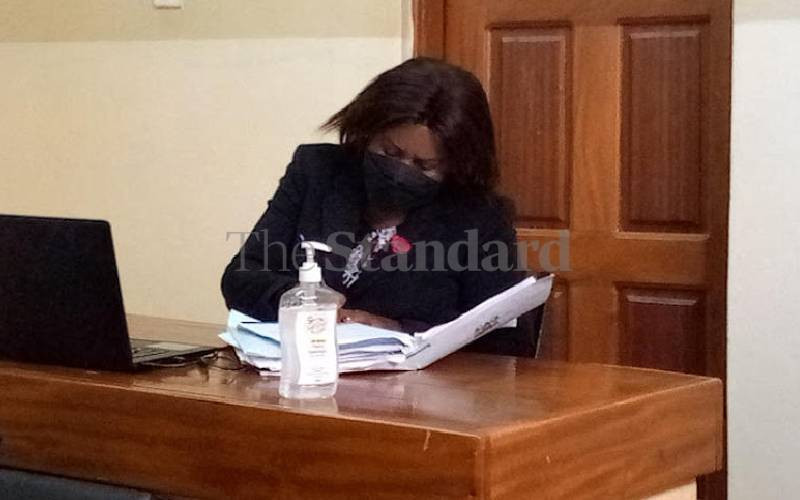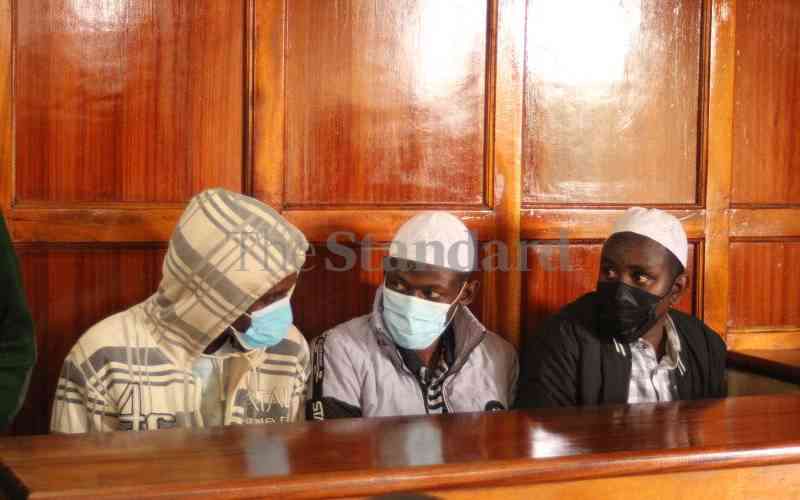NAIROBI: The 13 money remittance firms or hawalas that were suspended by the government two months ago over allegations of financing terrorism will soon be back to business after President Uhuru Kenyatta issued an order to the effect on Thursday.
In a written statement from State House, the President directed the Central Bank of Kenya to immediately issue comprehensive regulations that guide the operations of the firms, upon which their suspension would be lifted
Among the money remittance firms that are set to reopen include Dahabshiil Money Transfer Ltd, UAE Exchange Money Transfer Ltd, Kendy Money Transfer, Amal Express, Tawakal Money Transfer and Kaah Express.
Others are Jubba Express, Iftiin Express, Hodan Global, Amana Money Transfer, Bakaal Express, Continental Money Transfer and Flex Money Transfer.
The President said he made the decision after being briefed on the progress of the on-going investigations on the financing of terrorism and received the proposal to lift the suspension on the firms which are officially known as Money Remittance Providers.
The development was widely welcome by the suspended firms through their umbrella body, the Kenya Forex and Remittance Association (KFRA).
“We are grateful about the action taken by the President and the government to allow us to continue our operations. We are anxious to go back to our businesses of facilitating money transfer into the country from the diaspora,” said KFRA Chairperson Anthony Wachira.
He added: “We are ready to work with the government to further strengthen the regulations that guide our operations. We are ready to play a positive role in enhancing the economy of the country. We have never and will never finance terrorism or any crime. We have always operated above board.”
The money remittance firms were closed on April this year after the horrific Al Shabaab attack on the Garissa University College that left at least 148 people dead.
Before the 13 MRPs were suspended, they were licensed and regulated by the Central Bank of Kenya while their financial transactions were monitored by the Financial Reporting Center, a state agency that works to combat financial crimes such as money laundering and financing of terrorism among others. It appears that the regulations will be enhanced further to seal any loopholes that may have existed.
Wachira urged the CBK to involve all the relevant stakeholders in preparing the enhanced regulations in order to make them more effective.
He said that in the two months that the MRPs had been out of operation, the inflows of remittances from abroad has dipped slightly and that may have contributed in some way to the depreciation of the shilling.
‘We are ready to play our role in enhancing the country economy by facilitating secure and inexpensive money transfer from the diaspora while working with the government to further secure our systems from criminal activities,” he said.
However, the fate of other persons and institutions that had been blacklisted by the government together with the money remittance firms remains unclear since they were not mentioned in the President’s statement.
Stay informed. Subscribe to our newsletter
This included prominent religious and business personalities who are still petitioning the government to declare them innocent and unfreeze their accounts.
 The Standard Group Plc is a
multi-media organization with investments in media platforms spanning newspaper
print operations, television, radio broadcasting, digital and online services. The
Standard Group is recognized as a leading multi-media house in Kenya with a key
influence in matters of national and international interest.
The Standard Group Plc is a
multi-media organization with investments in media platforms spanning newspaper
print operations, television, radio broadcasting, digital and online services. The
Standard Group is recognized as a leading multi-media house in Kenya with a key
influence in matters of national and international interest.
 The Standard Group Plc is a
multi-media organization with investments in media platforms spanning newspaper
print operations, television, radio broadcasting, digital and online services. The
Standard Group is recognized as a leading multi-media house in Kenya with a key
influence in matters of national and international interest.
The Standard Group Plc is a
multi-media organization with investments in media platforms spanning newspaper
print operations, television, radio broadcasting, digital and online services. The
Standard Group is recognized as a leading multi-media house in Kenya with a key
influence in matters of national and international interest.








